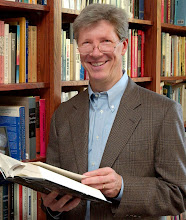
I've been preparing for a talk I’m giving on Monday, June 7, 7pm (to be repeated Wednesday, June 9, 11am) called Talking with God Using Beauty, our Brains, and the Bible. We will look at how Darwin, Monet, Mozart, Michelangelo, Einstein, Charlie Brown, Chopin, and Jewel help us to know God. It’s “multimedia,” meaning I’ve got power point images, and there will also be live music.
and Jewel help us to know God. It’s “multimedia,” meaning I’ve got power point images, and there will also be live music.
 and Jewel help us to know God. It’s “multimedia,” meaning I’ve got power point images, and there will also be live music.
and Jewel help us to know God. It’s “multimedia,” meaning I’ve got power point images, and there will also be live music. For a long time I’ve been reflecting on how we connect with God, and I mean beyond the usual suspects (like the Bible, praying, and worship). What about using our brains (and I don’t mean getting into the old reason vs. faith argument, but simply what we know, or what really smart people know…)? and what about beauty? I’ve written a book on preaching that will come out in a few months called The Beauty of the Word – and it seems to me that we do not think enough about beauty.

Is human achievement, and especially human creativity a gift of God’s Spirit? and if so how does that play out? and how do we wriggle our minds around the wonders of science, art, architecture and music and thereby grow closer to God? What is beauty, anyhow? Why is it so different from cute, sexy, handsome, pretty or "hot"? Rilke said "Beauty is the beginning of terror"... and there is something deep, profound, risky, life-giving about beauty.
If God is Beauty, if Psalm 27 says “One thing I will seek, to behold the beauty of the Lord,” and if even cynics about religion, Bible, prayer and God are moved by beauty, then beauty might be our hope, the only future to faith. What we have in Christianity truly is beautiful, and perhaps we can trust that? instead of striving so hard to be “relevant,” or to prop up traditional norms like the authority of Scripture or the grandeur of our institutions?
What strikes me as I prepare is recalling how awed I have been throughout my life by the things brilliant people who don’t believe in God have helped me  understand about God! Darwin gets trashed by Christians, but his life work opened up new vistas, and far deeper explorations of God’s good creation;
understand about God! Darwin gets trashed by Christians, but his life work opened up new vistas, and far deeper explorations of God’s good creation;  or I think about Michelangelo, who thought an artist needed to be holy – and yet Caravaggio, not noted for a squeaky clean character, kept up with Michelangelo. I think about the Peter Shaffer play (and the movie) Amadeus, where Salieri is incensed over the way Mozart seems to overhear the very voice of God, and Salieri is comparatively tone-deaf (despite his avowals of holiness). Can God co-opt people who aren’t believers, who aren’t interested in God at all, and use their genius to inspire and impress the rest of us?
or I think about Michelangelo, who thought an artist needed to be holy – and yet Caravaggio, not noted for a squeaky clean character, kept up with Michelangelo. I think about the Peter Shaffer play (and the movie) Amadeus, where Salieri is incensed over the way Mozart seems to overhear the very voice of God, and Salieri is comparatively tone-deaf (despite his avowals of holiness). Can God co-opt people who aren’t believers, who aren’t interested in God at all, and use their genius to inspire and impress the rest of us?
 understand about God! Darwin gets trashed by Christians, but his life work opened up new vistas, and far deeper explorations of God’s good creation;
understand about God! Darwin gets trashed by Christians, but his life work opened up new vistas, and far deeper explorations of God’s good creation;  or I think about Michelangelo, who thought an artist needed to be holy – and yet Caravaggio, not noted for a squeaky clean character, kept up with Michelangelo. I think about the Peter Shaffer play (and the movie) Amadeus, where Salieri is incensed over the way Mozart seems to overhear the very voice of God, and Salieri is comparatively tone-deaf (despite his avowals of holiness). Can God co-opt people who aren’t believers, who aren’t interested in God at all, and use their genius to inspire and impress the rest of us?
or I think about Michelangelo, who thought an artist needed to be holy – and yet Caravaggio, not noted for a squeaky clean character, kept up with Michelangelo. I think about the Peter Shaffer play (and the movie) Amadeus, where Salieri is incensed over the way Mozart seems to overhear the very voice of God, and Salieri is comparatively tone-deaf (despite his avowals of holiness). Can God co-opt people who aren’t believers, who aren’t interested in God at all, and use their genius to inspire and impress the rest of us?How does God feel about music and art that are not “sacred”? Does God really prefer religious music? or religious books? I think of Karl Barth’s quip: what do the angels sing when th ey come before God’s throne to praise him? Bach, of course. But what do the angels sing when they are off by themselves? Mozart. Does God dig “secular” novels and movies? Might some of the religious pablum be dull even to God? Chopin doesn’t cheer my soul; instead he breaks my heart – but the sorrow his music taps helps me toward God.
ey come before God’s throne to praise him? Bach, of course. But what do the angels sing when they are off by themselves? Mozart. Does God dig “secular” novels and movies? Might some of the religious pablum be dull even to God? Chopin doesn’t cheer my soul; instead he breaks my heart – but the sorrow his music taps helps me toward God.
 ey come before God’s throne to praise him? Bach, of course. But what do the angels sing when they are off by themselves? Mozart. Does God dig “secular” novels and movies? Might some of the religious pablum be dull even to God? Chopin doesn’t cheer my soul; instead he breaks my heart – but the sorrow his music taps helps me toward God.
ey come before God’s throne to praise him? Bach, of course. But what do the angels sing when they are off by themselves? Mozart. Does God dig “secular” novels and movies? Might some of the religious pablum be dull even to God? Chopin doesn’t cheer my soul; instead he breaks my heart – but the sorrow his music taps helps me toward God. These and other questions will occupy me this week in preparation, and on Monday (and Thursday) when I actually present. Let me know any thoughts or questions you might have…



